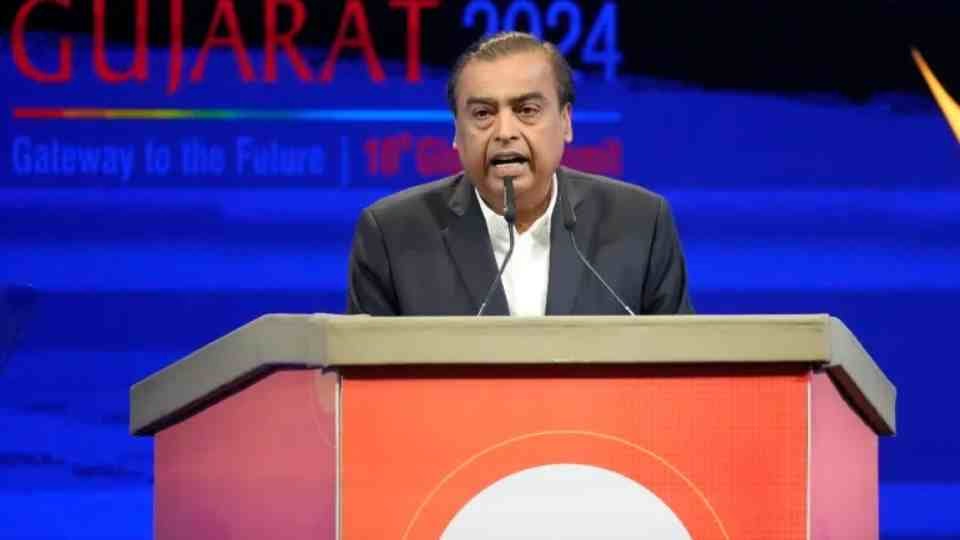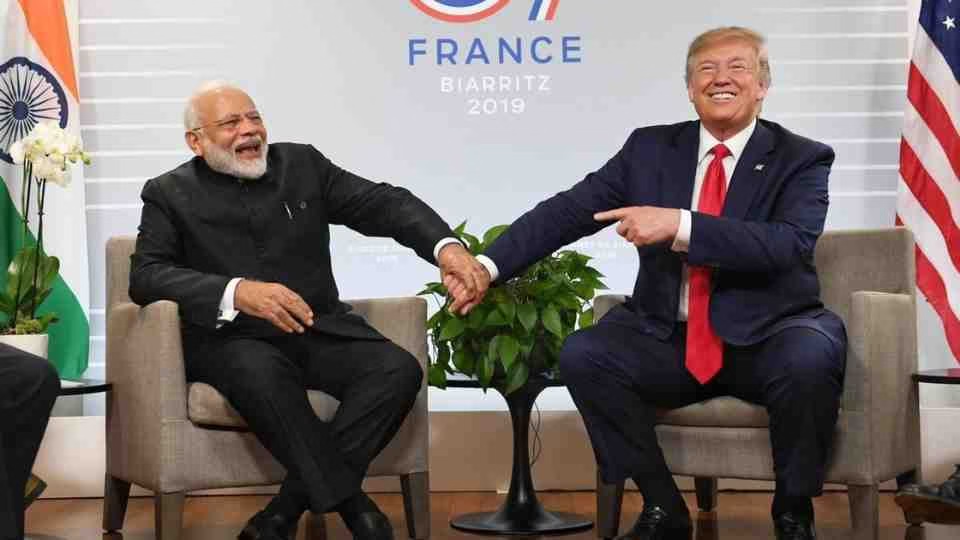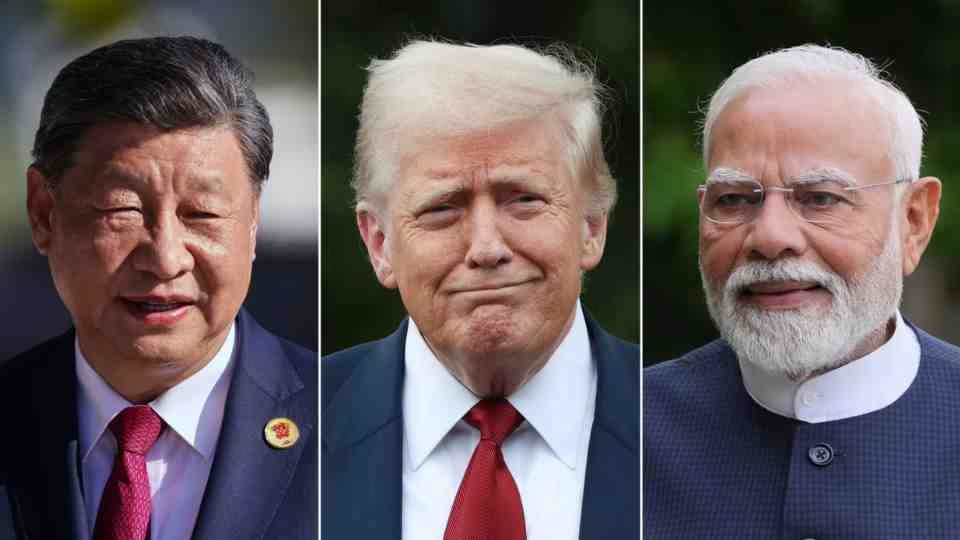The escalating trade tensions between the United States and India have reached a boiling point, with President Donald Trump imposing hefty tariffs on Indian goods over New Delhi’s continued imports of Russian oil. At the center of this geopolitical storm stands Asia’s wealthiest individual, Mukesh Ambani, whose Reliance Industries has emerged as one of the biggest beneficiaries of discounted Russian crude.
The Tariff Escalation
US President Donald Trump doubled tariffs on Indian goods to 50% as a penalty for its purchases of Russian oil, escalating a fight with a key Asian partner and sparking outrage in New Delhi. The move represents one of the most aggressive trade actions taken by the Trump administration against a strategic partner, placing India alongside China in the highest tier of tariffed nations.
President Donald Trump said he was doubling tariffs on India from 25% to 50%. In an executive order, Trump says “I find that the Government of India is currently directly or indirectly importing Russian Federation oil” as justification for the punitive measures.
The timing is particularly significant, coming as Bilateral trade between New Delhi and Moscow reached a record $68.7 billion for the year ended March 2025, with India’s increased oil imports contributing to a $59 billion deficit.

The Ambani Connection
Behind India’s massive surge in Russian oil imports lies the industrial empire of Mukesh Ambani, whose Reliance Industries operates the world’s largest oil refinery complex in Jamnagar, Gujarat. The Jamnagar Refinery (also known as RIL Jamnagar or RPL Jamnagar) is a private sector crude oil refinery owned by Reliance Industries in Motikhavdi, Jamnagar, Gujarat, India. The refinery was commissioned on 14 July 1999 with an initial installed capacity of 668,000 barrels per day (106,200 m3/d). Its current installed capacity after expansion is 1,240,000 barrels per day (197,000 m3/d). It is currently the largest oil refinery in the world.
The transformation has been dramatic. The report highlighted that Reliance Industries Jamnagar refinery exported around 67 per cent of its production, and in June imports of Russian oil at 746,000 bpd made up over half of Jamnagars 1.36 million bpd capacity.
This shift represents a complete reconfiguration of India’s energy supply chains. Since Russia’s full-scale invasion of Ukraine in early 2022, Reliance and other Indian refiners have imported vast quantities of Russian crude at steep discounts, creating significant profits amid soaring global energy prices.

The Financial Flow
The numbers tell a compelling story of how Russian oil has become central to India’s energy strategy. In 2024, India bought Russian oil worth more than US $47 billion, according to the Finnish think tank Centre for Research on Energy and Clean Air. Nearly a third of India’s total oil imports come from Russia.
What makes this particularly controversial is where much of this refined oil ends up. Between January 2024 and January 2025, the US imported €2.8 billion worth of refined oil from six refineries in India and Turkey that process Russian crude. Of this, fuel worth €1.3 billion is estimated to have been refined from Russian oil.
The US, in fact, ranks fourth by value and first by volume for products sourced from Jamnagar, importing 8.4 million tonnes since 2023, including blending components (64%), petrol (14%), and fuel oils (13%). This creates the paradoxical situation where the US is indirectly importing Russian-origin petroleum products while simultaneously sanctioning Russia.
The Price Cap Failure
The Western price cap mechanism, designed to limit Russian revenues while maintaining global oil supply, appears to have been circumvented. The $60 price cap on Russian oil, set in Feb 2023 to limit Moscow’s revenue has failed to achieve its intended goals.
Instead of reducing Russian income, the cap has created new profit opportunities for intermediaries like Reliance. Russia received around €750 million in tax revenues from such exports through this indirect route, demonstrating how the sanctions regime has been effectively bypassed.
Global Implications
The situation highlights the complex realities of global energy markets in an era of economic warfare. Indian analysts were quick to note that other major importers of Russian oil, China have faced less aggressive action from the Trump administration, raising questions about the selective application of trade pressure.
India’s position reflects its historical non-alignment policy, refusing to choose sides definitively between major powers. The country has maintained that it purchases oil based on economic considerations rather than political ones, arguing that cheaper energy imports help control inflation and support economic growth.
The Broader Context
Its choices have also been limited by other US actions – India was forced to stop buying oil from Iran and Venezuela after Trump imposed sanctions and threatened tariffs against countries that bought from those places. This has left Russia as one of the few major suppliers offering significant discounts to Indian refiners.
The controversy surrounding Reliance’s Russian oil imports reflects broader tensions about corporate responsibility during international conflicts. While Ambani’s company operates within legal frameworks, critics argue that such large-scale imports indirectly support Russia’s war effort in Ukraine through tax revenues and foreign currency earnings.
Looking Forward
As the trade war intensifies, both countries face difficult choices. For India, continued Russian oil imports offer substantial economic benefits but come at the cost of deteriorating relations with its largest trading partner. For the US, the tariffs represent an attempt to enforce geopolitical alignment through economic pressure, but risk damaging relationships with a key strategic partner in the Indo-Pacific region.
The outcome of this confrontation will likely shape global energy markets and trade relationships for years to come, with Mukesh Ambani’s Reliance Industries positioned at the center of this complex geopolitical puzzle.






